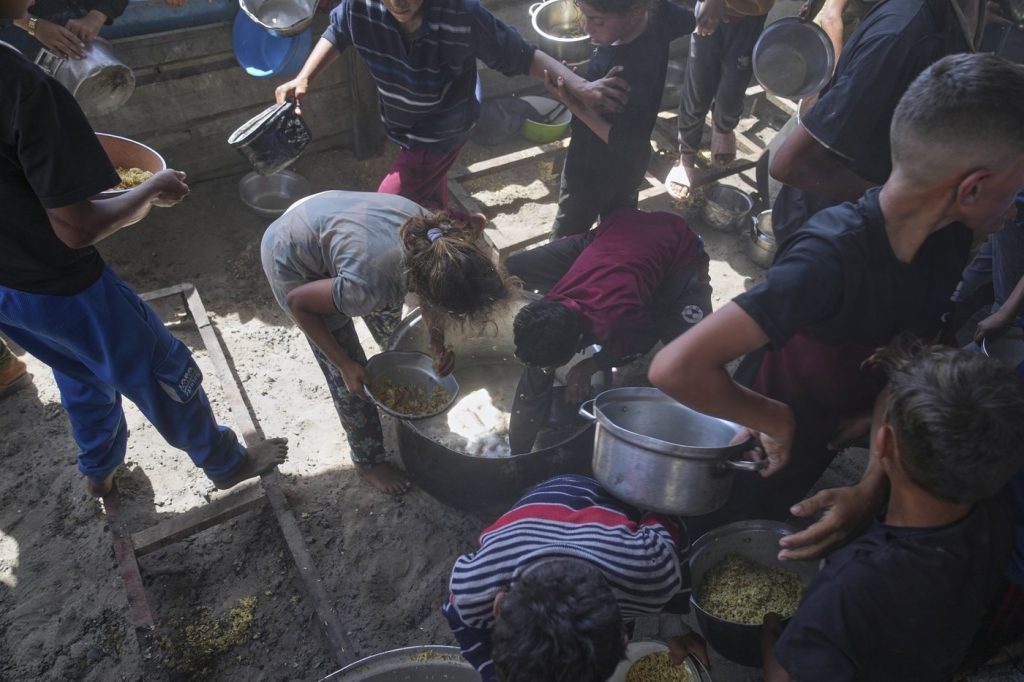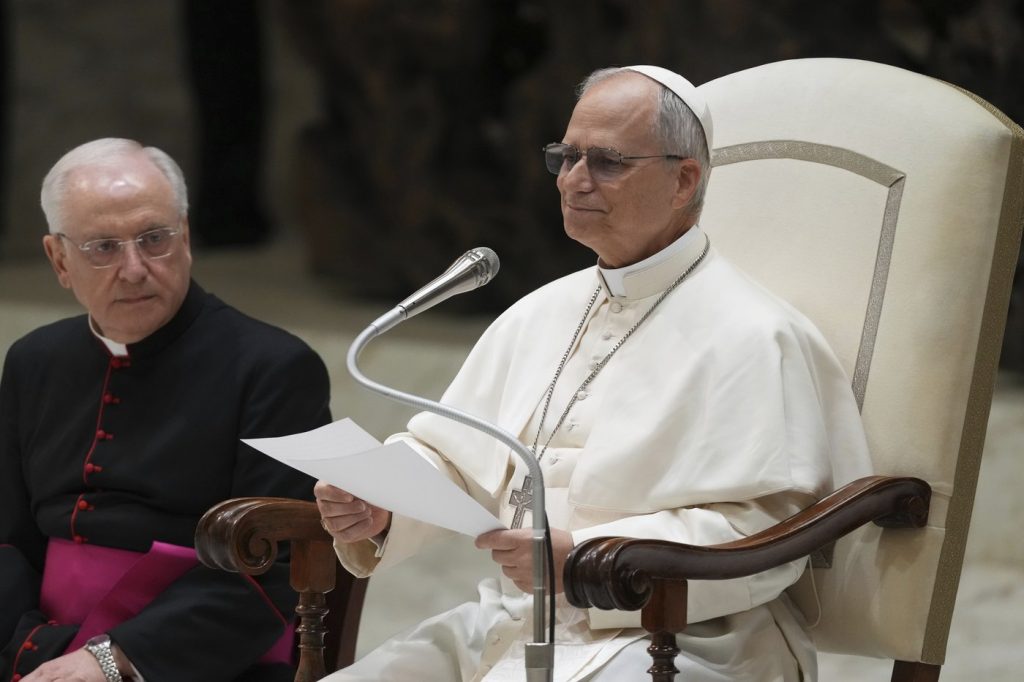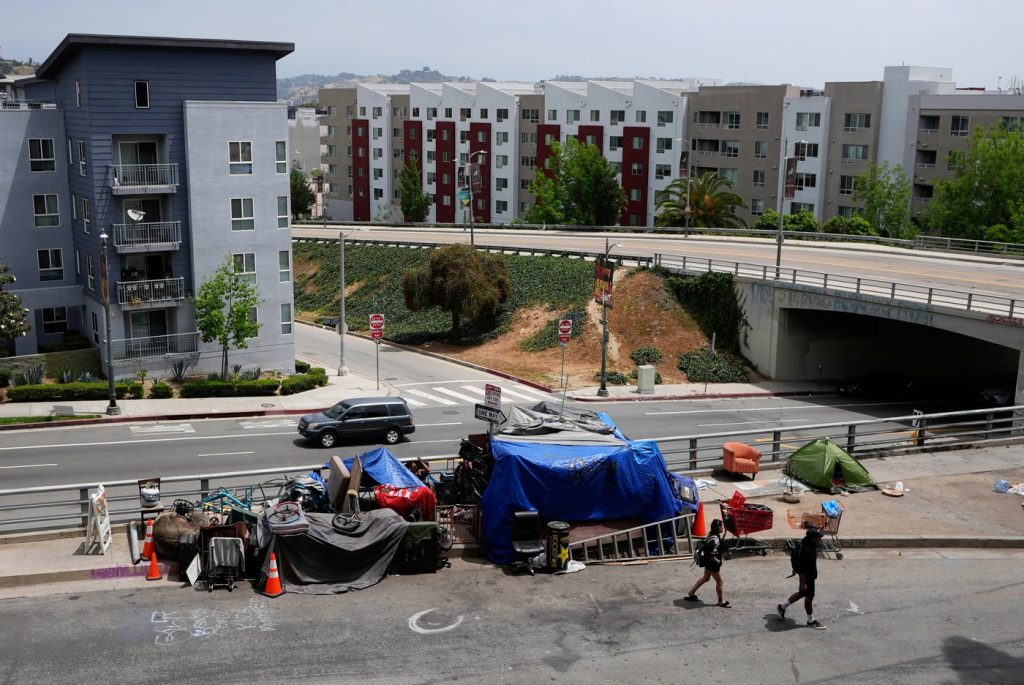TEL AVIV, Israel (AP) – Food security experts issued a grave warning on Monday, stating that the Gaza Strip is on the brink of famine unless Israel lifts its blockade and halts its military operations. According to the Integrated Food Security Phase Classification (IPC), nearly half a million Palestinians are currently facing catastrophic hunger levels, with an additional 1 million struggling to secure adequate food supplies.
The IPC highlighted that there is a “high risk” of outright famine if the blockade remains in place. Israel has maintained its blockade on the Gaza Strip for the last ten weeks, restricting the entry of food, shelter, medicine, and other essential goods while continuing its airstrikes and ground operations. The population of Gaza, approximately 2.3 million, relies heavily on external aid due to the devastation of local food production capabilities caused by Israel's ongoing military campaign.
In response to the IPC's findings, Israel’s Foreign Ministry dismissed the report, claiming that past forecasts were inaccurate and that the group underestimated the amount of aid that entered Gaza during a ceasefire earlier this year. The Israeli military asserts that its blockade aims to exert pressure on Hamas to release hostages, stating it will not permit aid to enter until a new distribution system, which includes Israeli control, is implemented. The United States is reportedly working on a new aid mechanism but has not provided a timeline for its implementation.
Scenes of desperation are emerging in Gaza as food supplies dwindle. Public kitchens, which have been the primary source of meals for many, are rapidly closing due to a lack of resources. Thousands of Palestinians are seen queuing for hours, attempting to secure basic staples like lentils and pasta, often leaving empty-handed. One recipient, Riham Sheikh el-Eid, described the exhausting lines and the frustration of not receiving enough food.
Despite the absence of a formal famine declaration, food security analysts assert that starvation is already affecting the population. An analyst from the International Crisis Group noted that the Israeli government’s actions appear aimed at starving Gaza to undermine Hamas. The latest IPC report indicates that significant portions of the Gaza population are experiencing high hunger levels because of the ongoing conflict, infrastructural collapse, agricultural destruction, and blockade-related aid shortages.
Calls for unimpeded humanitarian access are growing louder, with Mahmoud Alsaqqa from Oxfam urging governments to press Israel to allow aid. He stated, “Silence in the face of this man-made starvation is complicity.” The report indicates that the conditions in Gaza have deteriorated since a brief ceasefire, with serious implications for food and water access, health services, and overall population stability.
The IPC, established in 2004, sets famine declarations based on three criteria: the proportion of households with extreme food shortages, rates of acute malnutrition among children, and daily mortality rates due to starvation. The latest assessment found that 22% of Gaza's population—about 477,000 people—are classified as facing catastrophic hunger. Over 1 million more are at emergency hunger levels, while the other famine criteria have not yet been met. Food security experts caution that this may change if the current conditions persist.
According to Beth Bechdol from the U.N.'s Food and Agriculture Organization, over 75% of Gaza's farmland has suffered damage or destruction, exacerbating the already dire food situation. With the possibility of famine looming, aid organizations have reported a surge in malnutrition cases among children, alongside a rapidly depleting supply of treatment resources.
The ongoing humanitarian crisis in Gaza poses urgent challenges, with aid distribution networks collapsing and prices of remaining food resources skyrocketing. This creates a catastrophic scenario for the majority of Gaza’s residents, with limited access to food, clean water, and essential medical care, prompting widespread calls for immediate international intervention.












